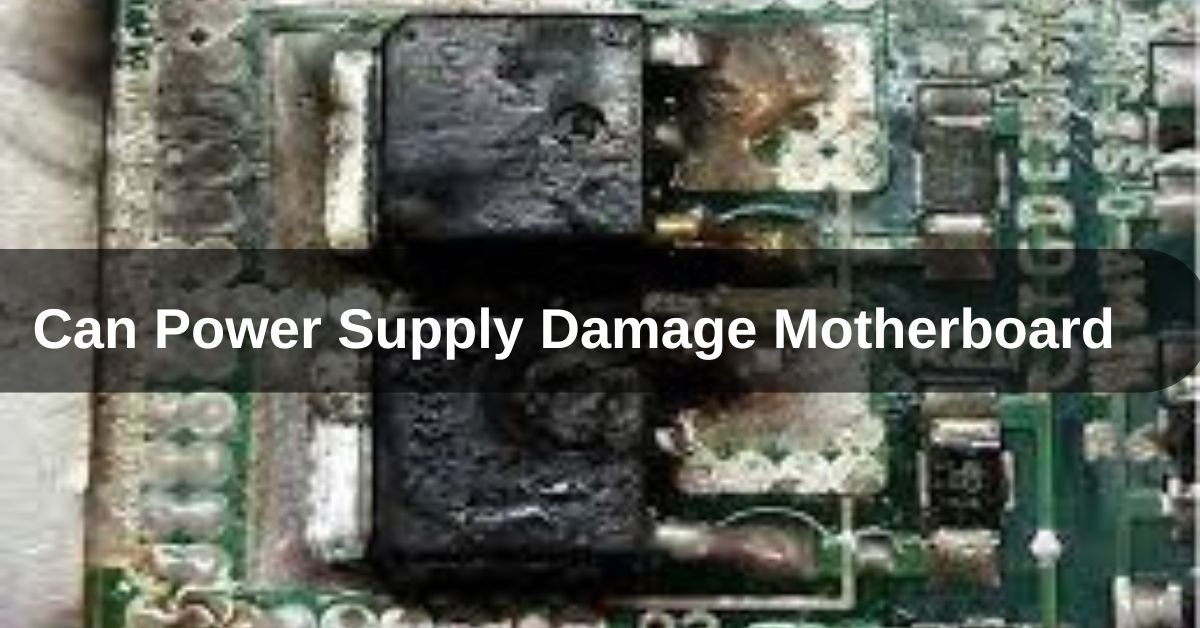Power supplies and motherboards are two fundamental components of any computer system. While they work hand in hand to ensure the smooth functioning of your PC, there’s a potential risk involved: can a power supply damage a motherboard?
Yes, a faulty power supply can harm the motherboard. When it sends incorrect voltage or current, it can overload components, leading to damage or even complete failure.
In this article, we will discuss “Can Power Supply Damage Motherboard” and also understand the power supply and motherboard relationship.
Understanding Power Supply and Motherboard Relationship:
Before we explore the potential risks, it’s crucial to comprehend the roles of both the power supply and the motherboard within a computer system.
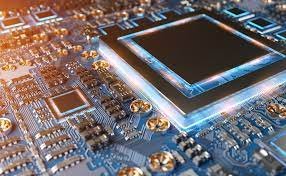
The power supply serves as the heart, converting electrical energy from an outlet into usable power for the components. On the other hand, the motherboard acts as the nervous system, facilitating communication between different parts of the computer.
Read: What Does Cha Fan Mean On Motherboard – Complete Guide!
Understanding Power Supply Basics:
Before delving into the potential damage, it’s crucial to comprehend the basics of a power supply.
A power supply unit (PSU) converts alternating current (AC) power from your wall outlet into direct current (DC) power, which your computer components utilize.
Understanding voltage, amperage, and wattage is essential, as different components have varying power requirements.
The Functionality of Power Supply:
The power supply regulates voltage levels and ensures a consistent flow of current to the motherboard and other hardware components. Voltage regulation is essential to prevent fluctuations that could harm sensitive electronics.
1. Components of a Motherboard:
Within the motherboard lie critical components such as power connectors and voltage regulators.
These elements play pivotal roles in distributing power to various parts of the computer system and maintaining stable operation.
Read: Msi Motherboard Error Codes – Comprehensive Guide of 2024!
Potential Risks to Motherboard from Power Supply:
Despite their importance, power supplies can pose risks to motherboards if not properly managed.
Overvoltage, caused by a sudden surge in electrical potential, and power surges, stemming from fluctuations in power supply, are common culprits behind motherboard damage.
1. Symptoms of Motherboard Damage:
Identifying motherboard damage can be challenging, but certain signs like failure to boot, erratic behavior, or a distinct burning smell emanating from the system may indicate underlying issues.
Read: Do Motherboards Come With Windows – Ultimate Guide – 2024
What Causes Power Supply Failure In A Computer System?
Power supply failure in a computer system can be caused by various factors including:
1. Overheating due to dust buildup or inadequate ventilation.
2. Electrical surges or spikes from the power grid.
3. Aging components or capacitor degradation.
4. Overloading the power supply with too many devices.
5. Manufacturing defects or poor quality components.
Read: Do All GPU Fit All Motherboards – Comprehensive Guide – 2024
Can A Bad Power Supply Damage Motherboard?
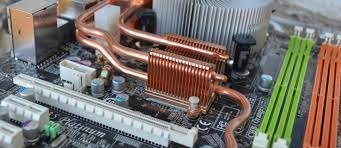
Yes, a bad power supply can damage a motherboard. If the power supply sends incorrect voltage, experiences power surges, or fails to provide stable power, it can harm the components on the motherboard.
Read: Can A Motherboard Fit In Any Case – Ultimate Guide – 2024
What can damage motherboard?
Several factors can damage a motherboard, including:
- Electrical surges or spikes.
- Overheating due to inadequate cooling.
- Physical damage from mishandling or accidents.
- Manufacturing defects.
- Incompatible or faulty components.
- Age-related wear and tear.
Why Do Motherboards Fail?
Motherboards can fail due to various reasons such as overheating, electrical surges, physical damage, manufacturing defects, or age-related wear and tear on components like capacitors or integrated circuits.
What happens if my psu blows?
If your PSU blows, it can cause your computer to suddenly shut down or not power on at all. It might also damage other components like the motherboard, CPU, or graphics card. Replacing the PSU is necessary.
Can a damaged motherboard hurt my power supply?
Yes, a damaged motherboard can potentially harm your power supply. Electrical issues on the motherboard, such as short circuits or power surges, can cause damage to the power supply unit (PSU) and other components connected to it.
Can a bad power supply damage a motherboard?
Yes, a bad power supply can damage a motherboard. If the power supply delivers inconsistent or excessive voltage, it can cause electrical damage to the motherboard and other connected components, potentially rendering them unusable.
Can PSU damage other components?
Yes, a faulty PSU can damage other components in your computer. If the power supply delivers incorrect voltage or experiences a surge, it can cause damage to the motherboard, CPU, graphics card, and other connected hardware.
Can wrong power supply damage PC?
Yes, using the wrong power supply can damage your PC. If the power supply provides insufficient or excessive voltage or wattage, it can cause damage to components like the motherboard, CPU, and graphics card, leading to potential system failure.
How to Tell if Your Power Supply or Motherboard Is Bad?
To tell if your power supply or motherboard is bad, check for signs like no power, unusual noises, or burning smells.
Test the power supply with a multimeter and inspect the motherboard for physical damage. Consult a technician for professional diagnosis if needed.
What Happens When Your Motherboard Fails?
When your motherboard fails, your computer stops working properly. It might not turn on at all, or it could freeze and crash frequently. You might see error messages or hear strange noises. It needs to be replaced to fix the problem.
Can a faulty psu damage motherboard?
Yes, a faulty PSU can damage a motherboard. If the power supply unit delivers incorrect voltage or experiences a surge, it can cause electrical damage to the motherboard, potentially rendering it unusable.
Can a bad psu damage other components?
Yes, a bad PSU can damage other components. If it delivers incorrect voltage or experiences a surge, it can harm components like the motherboard, CPU, and graphics card, leading to system instability or failure.
Can bad power supply damage motherboard?
Yes, a bad power supply can damage the motherboard. If it provides incorrect voltage or experiences a surge, it can cause electrical damage to the motherboard, potentially rendering it inoperable or causing other issues with the computer.
Can a bad power supply fry a motherboard?
Yes, a bad power supply can fry a motherboard. If the power supply delivers excessive voltage or experiences a surge, it can cause irreversible electrical damage to the motherboard, rendering it unusable and potentially damaging other components as well.
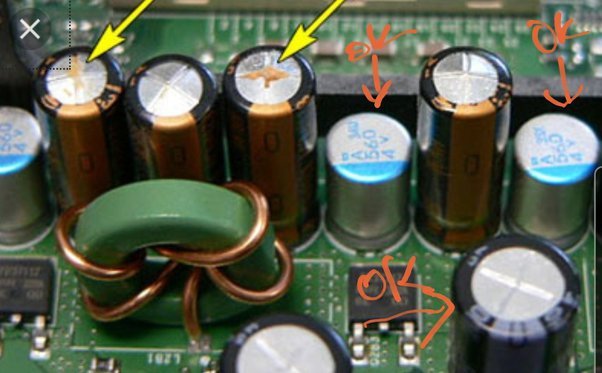
Can a power supply fry a motherboard?
Yes, a power supply can fry a motherboard. If it delivers too much voltage or experiences a surge, it can cause severe electrical damage to the motherboard, rendering it inoperable and potentially damaging other connected components in the process.
How Can A Faulty PSU Damage Your Motherboard?
A faulty PSU can damage your motherboard in several ways. It may deliver incorrect voltage, cause power surges, or fail to provide stable power, leading to overheating, electrical shorts, and ultimately damaging the motherboard’s components.
Why Bad PSU Damages Motherboards?
A bad PSU can damage motherboards due to various reasons such as delivering incorrect voltage, experiencing power surges, or failing to regulate power properly, which can lead to overheating and component failure.
Can a power supply be too powerful for a motherboard?
Yes, a power supply can be too powerful for a motherboard. While it won’t harm the motherboard directly, using an excessively powerful PSU may be unnecessary and inefficient for the system’s needs.
Can a power surge break a motherboard?
Yes, a power surge can break a motherboard. When excess electrical voltage flows through the motherboard due to a surge, it can damage components and lead to malfunction or failure.
How do I know if I fried my motherboard?
You can tell if you’ve fried your motherboard if your computer fails to power on, emits unusual smells or sounds, displays error messages, or if connected components don’t function properly.
Can a motherboard damage PSU?
Yes, a malfunctioning or damaged motherboard can potentially damage a PSU. If there’s a short circuit or other electrical issue on the motherboard, it may cause excessive load or irregular power draw, which can harm the PSU.
PSU blew up, what could it have damaged?
If the PSU blew up, it could have damaged various components in the computer, including the motherboard, CPU, GPU, RAM, storage drives, and other peripherals connected to the power supply.
Can A Blown PSU Damage A Motherboard?
Yes, a blown PSU can damage a motherboard. If the power supply unit fails catastrophically, it can send excessive voltage or cause power surges that may damage components on the motherboard.
How Fast Can Power Supply Damage Motherboard?
A power supply can damage a motherboard instantly if it delivers a power surge or incorrect voltage. However, the exact speed of damage depends on the intensity of the surge or fault in the power supply.
What Will Happen If Motherboard Is Damaged In Phone?
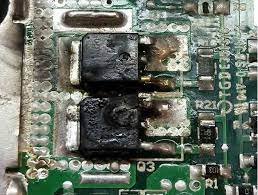
If the motherboard is damaged in a phone, the device may experience various issues such as failure to power on, screen glitches, unresponsive touch functionality, inability to connect to networks, and overall system instability. Repair or replacement may be necessary for proper functionality.
Can A Bad Power Supply Damage Your Computer?
Yes, a bad power supply can damage your computer. If it sends incorrect voltage, experiences power surges, or fails to provide sufficient power, it can harm components like the motherboard and CPU.
If Motherboard Is Damaged In Laptop Can I Recover Data?
If the motherboard is damaged in a laptop, recovering data might be possible. However, it typically requires specialized tools and expertise. You may need to consult a professional data recovery service.
What Happens If Motherboard Is Damaged In Laptop?
If the motherboard is damaged in a laptop, it can cause various issues such as failure to power on, random shutdowns, inability to boot, malfunctioning peripherals, and overall system instability. Repair or replacement may be necessary.
Motherboard Short Circuit Repair Cost?
The cost of repairing a motherboard short circuit varies. It can range from $50 to $200 depending on the extent of the damage and the expertise of the technician performing the repair.
Can an aging PSU damage other components in your system?
Yes, an aging PSU can damage other components in your system. Over time, capacitors and other components in the PSU degrade, leading to unstable power delivery, voltage fluctuations, and potential power surges, which can harm connected components such as the motherboard, CPU, and storage drives. Regular maintenance is essential.
Bad PSU can damage cpu?
Yes, a bad PSU can damage the CPU. If the PSU sends incorrect voltage or experiences a surge, it can cause the CPU to receive too much power, leading to damage or failure.
Bad PSU ruined motherboard?
Yes, a bad PSU can ruin a motherboard. If the PSU sends incorrect voltage or experiences a surge, it can damage components on the motherboard, leading to malfunction or failure.
Does An Underpowered PSU Damage Motherboard?
Yes, an underpowered PSU can damage the motherboard. It may cause instability, overheating, and potentially deliver insufficient power to the motherboard and other components, leading to damage or failure.
Can switching off computer’s power supply while it’s running damage the I/O?
Yes, switching off a computer’s power supply while it’s running can potentially damage the I/O (input/output) devices connected to the system due to sudden power loss and voltage surges.
How Can You Prevent Your PSU From Being Damaged?
To prevent PSU damage, use a surge protector, ensure proper ventilation, avoid overloading the PSU with too many devices, match its wattage to your system’s needs, and perform regular maintenance checks.
Read: Z690 Motherboard Wifi Not Working – Ultimate Guide – 2024
Can A Power Supply Ruin A Motherboard?
Yes, a power supply can ruin a motherboard. If the power supply sends incorrect voltage or experiences a surge, it can damage components on the motherboard, leading to malfunction or failure.
Read: Are All Graphics Cards Compatible With All Motherboards – Ultimate Guide!
Can a blown PSU damage other components?
Yes, a blown PSU can damage other components. Excessive voltage spikes or electrical surges from a failed PSU can harm connected devices like the motherboard, CPU, GPU, and storage drives.
How Do I Know If My Motherboard Or Power Supply Is Bad?
If your computer doesn’t turn on, experiences frequent crashes emits unusual noises, or smells burnt, it may indicate a bad motherboard or power supply. Testing with replacement parts can help diagnose the issue.
Read: Dram Light On Motherboard – Complete Guide – 2024
Can an inadequate power supply unit damage a GPU?
Yes, an inadequate power supply unit can damage a GPU. Insufficient power can lead to instability, and overheating, and may cause the GPU to malfunction or fail prematurely.
Read: Are HP Motherboards Good – Complete Guide – 2024
Can a weak power supply damage the GPU?
Yes, a weak power supply can damage the GPU. Insufficient power delivery can lead to instability, and overheating, and potentially cause damage to the GPU over time, affecting its performance and lifespan.
Read: Does Any Power Supply Work With Any Motherboard – Ultimate Guide!
Can a blown power supply damage a motherboard?
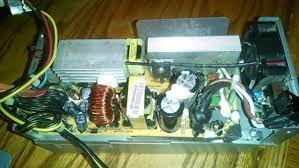
Yes, a blown power supply can damage a motherboard. When a power supply fails, it may send excessive voltage or current to the motherboard, causing damage or complete failure.
Read: Tuf Gaming Motherboard Wifi Not Working – Ultimate Guide!
FAQs:
1. Can a bad power supply kill a motherboard?
Yes, a bad power supply can kill a motherboard. If the power supply sends incorrect voltage or experiences a power surge, it can damage the motherboard, leading to malfunction or failure.
2. Will the motherboard be affected if the power supply blows up?
Yes, if the power supply blows up, it can affect the motherboard. The sudden surge or malfunction may send excessive voltage to the motherboard, causing damage or complete failure.
3. Can a broken motherboard break a power supply?
Yes, a broken motherboard can potentially cause issues with a power supply. If the motherboard malfunctions, it may draw excessive power or cause short circuits that can damage the power supply.
4. Can a powerful PSU fry a motherboard? How do you prevent it?
Yes, a powerful PSU can fry a motherboard if it sends too much voltage. To prevent this, ensure the PSU matches the motherboard’s power requirements and use surge protectors or UPS devices.
5. What are the reasons for a motherboard crash?
A motherboard can crash due to overheating, electrical surges, physical damage, incompatible hardware, or software issues. These factors can cause malfunctions, data loss, or complete failure of the motherboard.
6. Can a PSU blow up inside a computer case? If so, what could cause that to happen?
Yes, a PSU can blow up inside a computer case. Overheating, manufacturing defects, power surges, or using a PSU with insufficient wattage can cause it to fail catastrophically, damaging components.
7. Can a power supply short out a motherboard?
Yes, a power supply can short out a motherboard. If there’s a sudden surge or malfunction in the power supply, it can send excessive voltage to the motherboard, damaging it.
8. Can a bad PSU damage a GPU or motherboard?
Yes, a bad power supply unit (PSU) can damage a GPU or motherboard. If the PSU sends incorrect voltage or experiences power surges, it can harm components, causing malfunction or failure.
9. Is there any chance a PSU damaged brand new motherboard and CPU?
Yes, there is a chance. If a power supply unit (PSU) delivers incorrect voltage or has a power surge, it can damage a brand-new motherboard and CPU, leading to malfunction or failure.
10. What Happens If A Power Supply Fails?
If a power supply fails, your computer won’t turn on or might shut down unexpectedly. It can damage other components like the motherboard, hard drive, or graphics card, leading to system failure.
Conclusion:
In conclusion, it’s clear that a faulty power supply can indeed harm a motherboard, affecting the overall performance and reliability of a computer system. Understanding the relationship between these components and recognizing potential risks is vital for ensuring the longevity of your PC. By taking preventive measures such as proper ventilation, using surge protectors, and matching power supply wattage to system requirements, users can safeguard against damage and enjoy uninterrupted computing.
